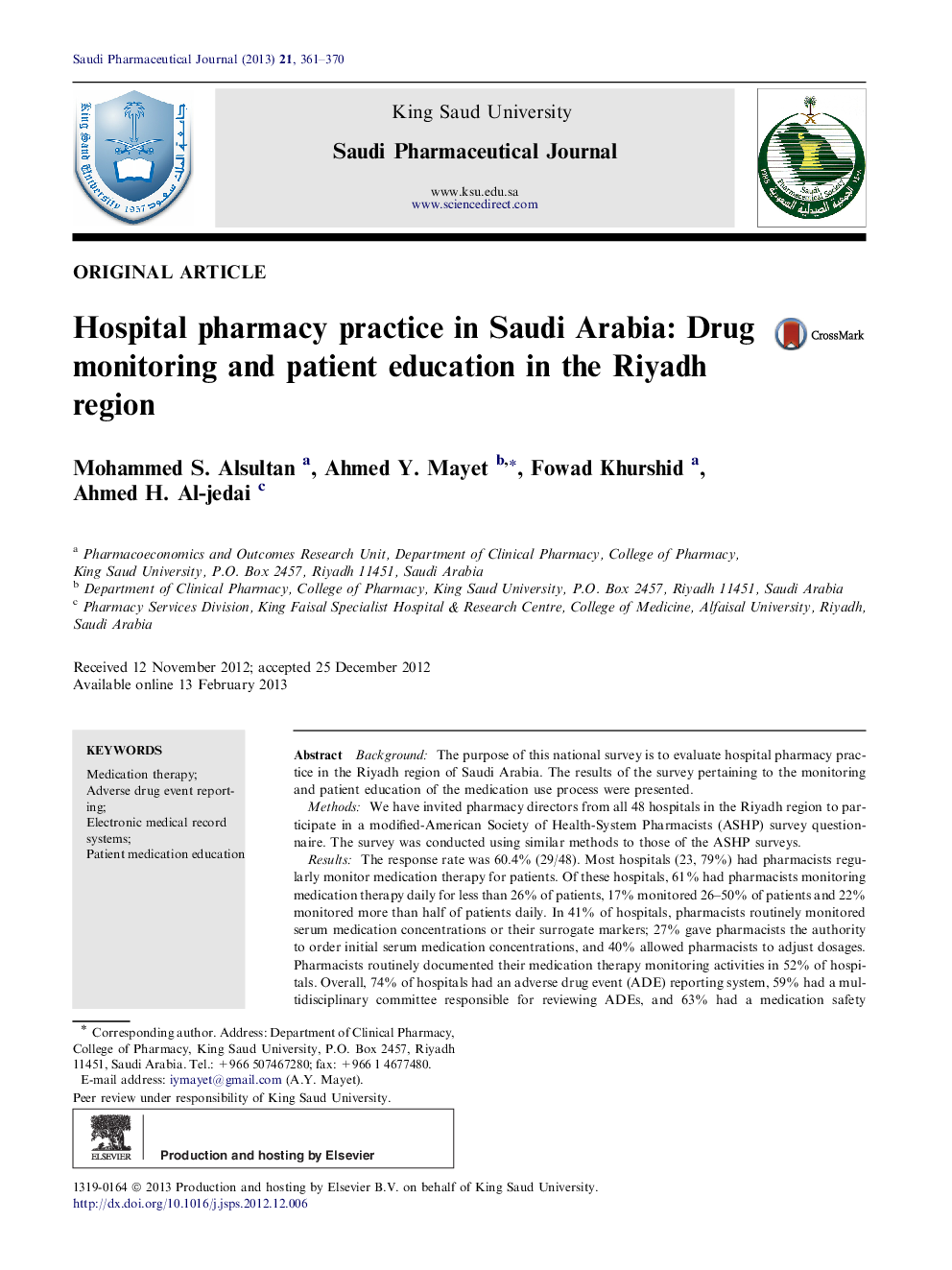| Article ID | Journal | Published Year | Pages | File Type |
|---|---|---|---|---|
| 2509552 | Saudi Pharmaceutical Journal | 2013 | 10 Pages |
BackgroundThe purpose of this national survey is to evaluate hospital pharmacy practice in the Riyadh region of Saudi Arabia. The results of the survey pertaining to the monitoring and patient education of the medication use process were presented.MethodsWe have invited pharmacy directors from all 48 hospitals in the Riyadh region to participate in a modified-American Society of Health-System Pharmacists (ASHP) survey questionnaire. The survey was conducted using similar methods to those of the ASHP surveys.ResultsThe response rate was 60.4% (29/48). Most hospitals (23, 79%) had pharmacists regularly monitor medication therapy for patients. Of these hospitals, 61% had pharmacists monitoring medication therapy daily for less than 26% of patients, 17% monitored 26–50% of patients and 22% monitored more than half of patients daily. In 41% of hospitals, pharmacists routinely monitored serum medication concentrations or their surrogate markers; 27% gave pharmacists the authority to order initial serum medication concentrations, and 40% allowed pharmacists to adjust dosages. Pharmacists routinely documented their medication therapy monitoring activities in 52% of hospitals. Overall, 74% of hospitals had an adverse drug event (ADE) reporting system, 59% had a multidisciplinary committee responsible for reviewing ADEs, and 63% had a medication safety committee. Complete electronic medical record (EMR) systems were available in 15% of hospitals and 81% had a partial EMR system. The primary responsibility for performing patient medication education lays with nursing (37%), pharmacy (37%), or was a shared responsibility (26%). In 44% of hospitals, pharmacists provided medication education to half or more inpatients and in a third of hospitals, pharmacists gave medication education to 26% or more of patients at discharge.ConclusionHospital pharmacists in the Riyadh region are actively engaged in monitoring medication therapy and providing patient medication education, although there is considerable opportunity for further involvement.
